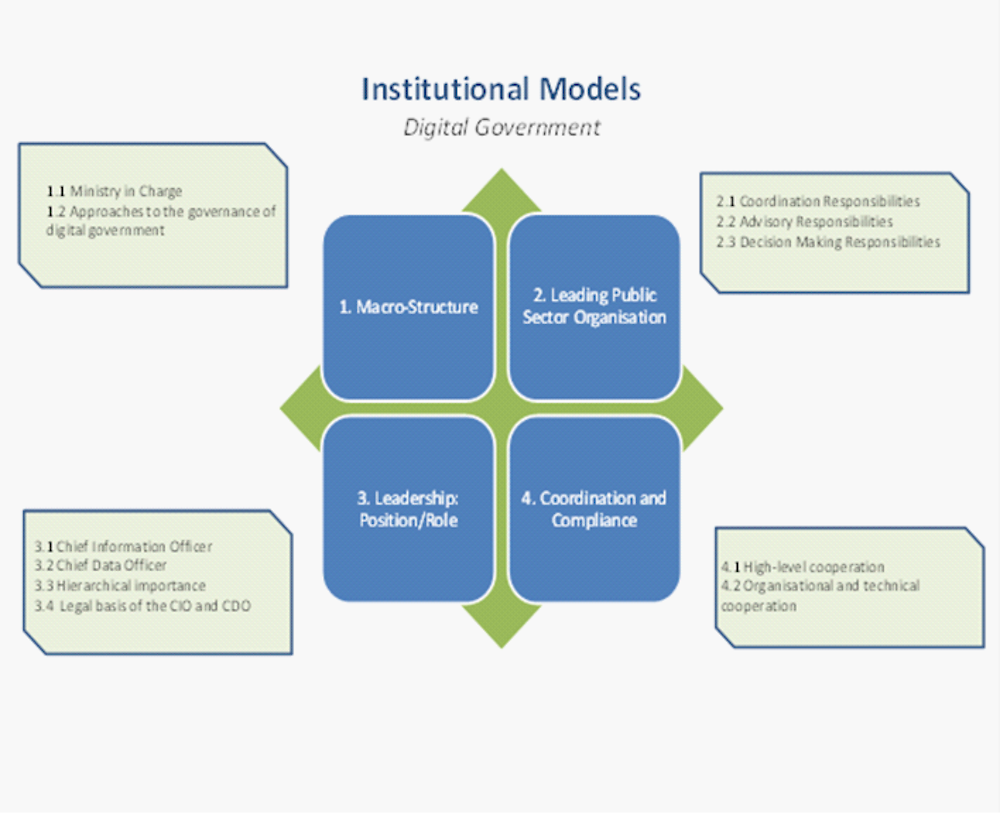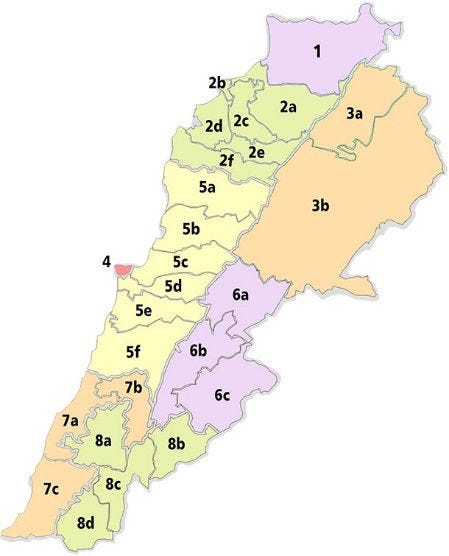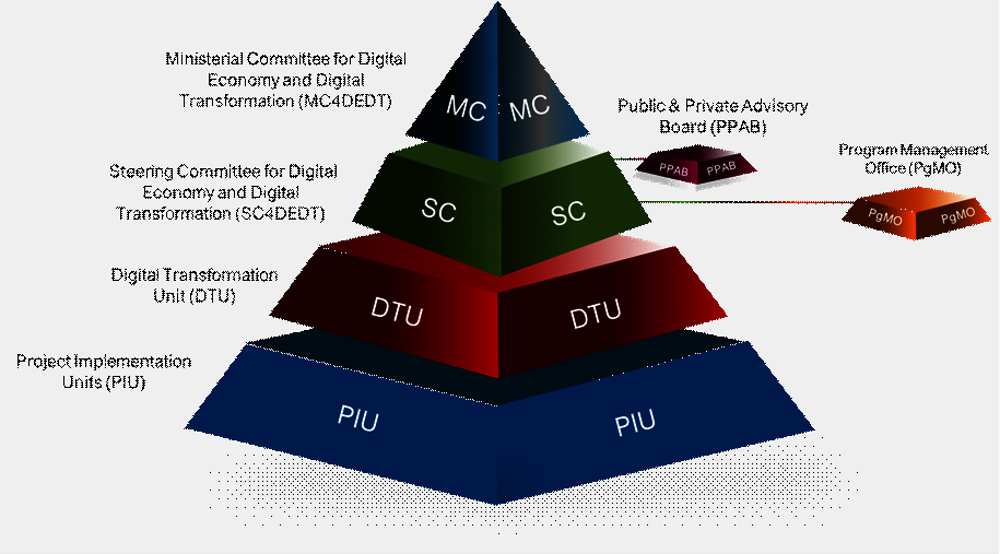Sound governance requires excellent co-ordination and commitment from the leadership and its units. In addition to effective organisational and governance frameworks, there is a need to establish reliable knowledge sharing and technical co-operation at the governmental level and with international bodies. A favourable operating climate to advance the digital transformation provides a stronger link between digital policy initiatives and broader policy objectives that positively strengthen people's trust in the public sector and the capacity to leverage digital government towards improved social well-being and sustainable economic development.
The Lebanese digital transformation draft strategy strongly relies on standards that allow technological interoperability, re-use of digital resources, data sharing and quality assurance through the government's reform plan. Setting government coherent standards for citizen-driven content and public services will help smoothen the digital transformation across the public sector. Standardisation increases efficiency, efficient connectivity and communication, maintain continuity in the digital interface of consumers and, where appropriate, ensure compliance with international standards.
The OECD Recommendation on Digital Government Strategies encourages the establishment of high-level governance and co-ordination to guarantee comprehensive collaboration and oversight of the digital government agenda (OECD, 2014[10]). An operational co-ordination structure is also needed to address implementation challenges and overcome bottlenecks. These two levels of co-ordination can be particularly helpful in maintaining the coherence, sustainability and continuity of the decisions, strategies and programmes to be adopted. The establishment of strategic co-operation processes also allows stronger surveillance, towards coherence, and gives the ability to provide decision-makers with an extensive range of projects and initiatives across sectors and levels of government. It can also allow a more straightforward evaluation of investment impacts. A co-operative environment between public stakeholders enables for better management of government operations through the return of information and data. It also allows the creation of transparency processes, which are essential for strengthening peoples' overall trust in public services and the government in general.
The institutional model foreseen by the digital transformation draft strategy of Lebanon demonstrates the country commitment to deeply strengthen cross-sector co-ordination and implementation of digital government policies. The foreseen Ministerial Committee for Digital Economy and Digital Transformation (MC4DEDT) will guarantee high-level political support and the Steering Committee for Digital Economy and Digital Transformation (SC4DEDT) will secure co-ordination across different public sector stakeholders. Additionally, the involvement of the ecosystem of stakeholders is institutionalised through the Public and Private Advisory Board (PPAB) and the co-ordinated implementation needs through the Programme Management Office (PgMO), the different Digital Transformation Units (DTU) and Project Implementation Units (PIU) across the administration.
Besides cross-sector co-ordination, sound cross-level processes and dynamics are also a critical governance variable of analysis. Encouraging powerful central government support for the governance of digital government means moving from agency-centric policies to framework solutions, concentrating on the advantages of improved policy action. A culture of co-operation can be further encouraged or fostered by organisational mechanisms that promote inter-governmental collaboration and consensus, facilitate an exchange of opinions, knowledge and information sharing among public actors on a broad-based framework of goals and priorities, and collective implementation practices.
In the case of Lebanon, there seems to exist a consensus about the excessive administrative centralisation at public administrations, knowing that such centralisation narrows the prerogatives and role of regional units and municipalities and puts on the central administration a heavy burden of duties. Municipalities depend on the orientations and resources made available by the central government. The central government and its local operatives have the prerogative of approving or rejecting any decision taken by a municipal council and consequently stop the work of municipalities. Besides, the heavy reliance on the central government for financial support places local autonomy at risk, especially in the absence of or manipulation of criteria that govern the distribution of funding from international financial institutions.
From the Taif agreements of 22 October 1989, administrative decentralisation is regularly mentioned by analysts and political leaders as a significant solution to issues such as the economic development of territories, the efficiency of public action or the fight against corruption. However, almost 30 years later, its legislative implementation has not been achieved: Parliament indeed adopted none of the numerous legislative proposals presented in the 1990s and 2000s. As part of the implementation of the structural reforms requested during CEDRE conference organised in Paris in April 2018 to support Lebanon development and reforms, the Government of Lebanon has a unique opportunity to rethink the administrative organisation scheme of its territory to best develop its economic potential and find the conditions for the maintenance of “social peace". One of the first principles of decentralisation is the presence of common interests specific to the region. As a result, shared economic interests take precedence over other interests such as the confessional political identity which seems to be one of the structuring elements of the planned division.
Considering the assessment expressed above on cross-sector and level co-ordination, three areas of improvement could help to achieve successful and efficient policy action in the case of digital government:
1. Shared policy execution: Although the policy oversight role of the Ministerial Committee for Digital Economy and Digital Transformation (MC4DEDT) and of the Steering Committee for Digital Economy and Digital Transformation (SC4DEDT) are critical foundations of stable and sustainable digital government development, strong policy efforts should be committed to ensuring a shared implementation of the new digital transformation draft strategy. A shared implementation approach framework promotes increasing digital government capacities across the administration and also encourages a sense of joint ownership and shared responsibility.
2. Strengthened compliance with current rules and norms: Most OECD member countries have significant capacity to develop and enforce rules and standards through their jurisdictions. In Lebanon, there is still big room for improvement to comply successfully with relevant digital government rules and standards. For instance, the value of data exchange across the administration should be embraced as a critical priority. This can be articulated with strengthened co-operation, assistance and capacity building across different policy areas and levels of government.
3. Improved mobilisation of different levels of government: Increased involvement and autonomy of local governments would favour more decentralised and sustainable digital transformation of the public sector. Mobilisation and aid across levels of government to support multilevel digital transformation agendas are essential to enabling a nation to sustain its digital development and secure that the digital transformation draft strategy is recognised as a policy for the state. The Government of Lebanon should consider enhancing strategy execution at the local stage, allowing initiatives and projects to be developed more in line with local needs, and promote the growth of local ecosystems of digital government stakeholders. Improved communication for local mobilisation, and the development of organisational areas for efficient co-operation such as regular meetings of CIOs across the entire administration could also be considered for cross-level co-ordination and co-operation.







